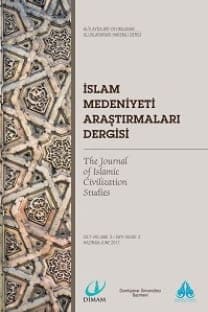ANTONY FLEW’DE TANRIYA DAİR PARADİGMA DEĞİŞİKLİĞİ
Antony Flew, ismi ateizmle anılan en meşhur felsefecilerden birisidir. Hayatının tamamına yakını ateizm müdafaasıyla geçmiştir. Fakat onu diğer ateist felsefecilerden ayıran en önemli özelliği felsefi tutumundaki radikal sayılabilecek değişimdir. Tüm felsefi mücadelesini, hakkında yeterli delil olmadığı gerekçesiyle Tanrı’nın varlığını inkâra odaklayan Flew benzer gerekçelerle bu görüşlerinden vazgeçmiştir. Her türlü inanç, fikir ve iddianın itibarını büyük oranda rasyonel ve kanıtlanabilir olmasına bağlayan ve tüm faaliyetlerini bu çerçeve dâhilinde sürdüren Flew, Tanrı ile ilgili geçirmiş olduğu karşıt her iki sürecin bu prensip doğrultusunda şekillendiğini iddia etmiştir. Doğal olarak bu iddiası nedeniyle hem lehte hem de aleyhte sayılabilecek birçok eleştiriye maruz kalmıştır. Flew dünya kamuoyu nezdinde kendisini popüler yapan ve dilimize “Yanılmışım Tanrı Varmış” ismiyle tercüme edilen “There is a God: How the World's Most Notorious Atheist Changed his Mind” adlı kitabını kaleme almak suretiyle hem bu eleştirilere cevap vermiş hem de bu değişim sürecini ve gerekçelerini ayrıntılı bir şekilde dile getirmiştir. Bu makalenin temel amacı da Flew’ün Tanrı hakkındaki tutum değişikliğini ve gerekçelerini; kendisine yöneltilen eleştirilerle birlikte ele almak ve analizini yapmak olacaktır.
Anahtar Kelimeler:
Tanrı; Teizm; Ateizm; İnce Ayar; Sonsuzluk
The Change of Paradigm about God in Antony Flew
Antony Flew is one of the most devout names of philosophical atheism. He spent almost all his life in defense of atheism. On the other hand he was distinguished from his fellow atheists by so-called dramatic shift that ensued in his philosophy. He who had committed all his philosophical efforts to the denial of the existence of God due to insufficient evidence has gave up his claim by the same token. Flew has believed that justification of any claim, idea or belief was possible only with its rationality and demonstrability and worked within this framework. He thus stated that this principle has also shaped opposing intellectual processes that he underwent in regard to God. As a consequence of this argument, he has been targeted numerous critiques both negative and positive. Flew has amplified upon this transition with justifying reasons in his “There is a God: How the World's Most Notorious Atheist Changed his Mind”, the book that put him on the spot. (The book is also translated into Turkish) The chief purpose of this article is to trace this transformation and analyze its motives in a critical manner.
Keywords:
God; Theism; Atheism; Fine Tuning; Eternity,
___
- Borchert, Donald M. (ed.), Encyclopedia of Philosophy, 2. ed., vol. 7., USA; Macmillan 2006.
- Bucaille, Maurice, İnsanın Kökeni Nedir?, çev. Ali Ünal, İnsan Yayınları, İstanbul 1988.
- Cevizci, Ahmet, Paradigma Felsefe Sözlüğü, Paradigma Yayınları, İstanbul 1999.
- Conway, David, The Rediscovery of Wisdom, Macmillan, London 2000.
- Corey, Michael, God and The New Cosmology The Anthropic Design Argument, Littlefield Publishers, Rowman & Boston 1993.
- Devies, Paul, “What Happened Before the Big Bang”, God For The 21st Century, ed. Russell Stannard, Templeton Foundation Press, Philadelphia 2000, s.10-12.
- Doko, Enis, Dahi ve Dindar: Isaac Newton, İstanbul Yayınevi, İstanbul 2011.
- Easterbrook, Gregg, “Meaning Makes a Comeback”, God For The 21st Century, ed. Russell Stannard, Templeton Foundation Press, Great Britain 2000, s. 32-36.
- Flew, Antony, God, Freedom and Immortality, Prometheus Books, New York 1984.
- ---------- There is a God: How the World's Most Notorious Atheist Changed his Mind, Harper One, New York 2007.
- Flew, A. & Habermas, Gary R., “My Pilgrimage from Atheism to Theism, A Discussion between Antony Flew and Gary Habermas”, Philosophia Christi, ed. Craig J. Hazen, Vol.6, No. 2., Evangelical 2004, s. 197-211.
- Foster, John, The Divine Lawmaker, Clarendon Press, Oxford 2007.
- Gillespie, Charles Coulston, Dictionary of Scientific Biography, Scribner, New York 1975.
- Haris, Errol E., Cosmos and Anthropos, A Philosophical Interpretation of the Anthropic Cosmological Principle, Humanities Press International, London 1991.
- Hawking, Stephen, A Brief History of Time, A Bantam Book, New York 2008.
- Heisenberg, Werner, Across The Frontiers, trans. Peter Heath, Herper&Row, San Francisco 1974.
- Jammer, Max, Einstein and Religion (Physıcs and Theology), Princeton University Press, New Jersey 2002.
- Kaya, Hasan ve Ertan, Zeynep, “Yanılmışım Tanrı Varmış”, Profil Yayıncılık, İstanbul 2014.
- Leslie, John, Infinite Minds, Clarendon Press, Oxford 2001.
- ----------, ‘Creation Stories, Religious and Atheistic’ International Journal For Philosophy of Religion, vol. 34, No. 2, 1993, s. 65-77.
- Meynell, Hugo, “The Existence of God”, Great Thinkers on Great Questions, ed. Roy Abraham Varghese, Oneworld Publications, USA&Canada 1999, s. 138-139.
- Planck, Max, Where Is Science Going?, trans. James Murphy, Norton, New York 1977.
- Ross, Hugh, The Fingerprint of God, Whitaker House, New Kensington 1989.
- Swinburne, Richard, The Coherence of Theism, Clarendon Press, Oxford 1977.
- ----------, “Design Defended”, Think, Philosophy for Everyone, ed. Stephen Law, Vol., 2, Issue 6, Cambridge University Press, March, 2004, s. 13-18.
- ----------, ‘Argument from the Fine-Tuning of the Universe’, Physical Cosmology and Philosophy, ed. John Leslie, Macmillan Publishing Company, New York 1990.
- ----------, Tanrı Var mı?, çev. Muhsin Akbaş, Arasta Yayınları, Bursa 2001.
- Tatlı, Adem, Evrim ve Yaratılış, Nesil Yayınları, İstanbul 2008.
- Tracy, Thomas F. God, Action and Embodiment, Grand Rapids, MI: Eerdmans, 1984.
- Wallace, Stan W. (ed.), “The Craig-Flew Debate”, Does God Exist?, Ashgate Publishing Company, Burlington 2007.
- Yayın Aralığı: Yılda 2 Sayı
- Başlangıç: 2014
- Yayıncı: Dumlupınar Üniversitesi İslami İlimler Fakültesi
Sayıdaki Diğer Makaleler
IV. TÜRKİYE LİSANSÜSTÜ ÇALIŞMALAR KONGRESİ (14-17 Mayıs 2015 Kütahya)
Sümeyye SEVİNÇ, İsa GÖKGEDİK, Emeti ÇALIŞKAN, Beyza DEMİRLEK, Ayşenur AYDINLI
PSİKOLOJİK YARDIM HİZMETLERİ BAĞLAMINDA TÜRKİYE’DE DİNÎ DANIŞMA VE REHBERLİK
أحكام التسعير في الفقه الاسلامي: İSLAM FIKHINDA FİYATLANDIRMA
ANTONY FLEW’DE TANRIYA DAİR PARADİGMA DEĞİŞİKLİĞİ
CUMHURİYET İDEOLOJİSİNİN ERKEN DÖNEM TÜRK SANAT TARİHİ ÇALIŞMALARINA ETKİLERİ
